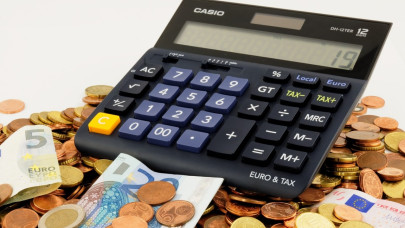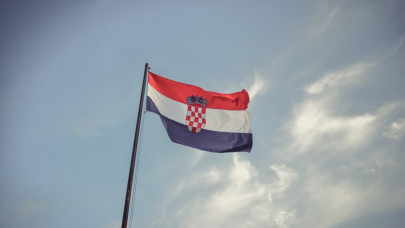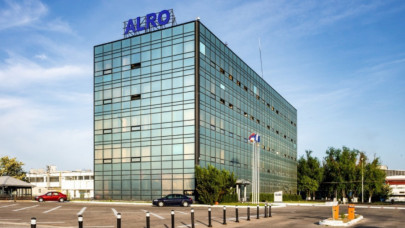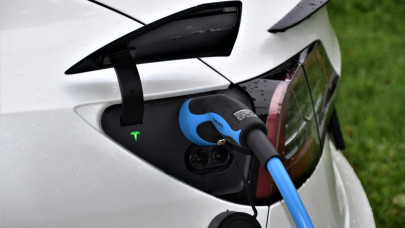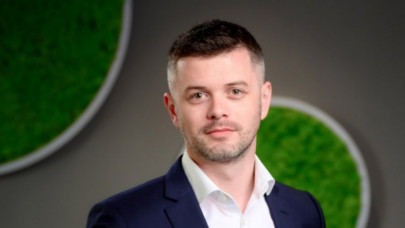The European Union is tightening regulations on sustainable finance. How is BCR Romania adapting its financial products and services to align with the EU's ESG taxonomy?
For us, at Erste Group and BCR, sustainability is a core priority, and part of our commitment to developing the future of Romania. Financial health and prosperity in the region are not only essential for the well-being of our customers and society at large but also an important basis for a successful business model. For this reason, we have firmly embedded the concept of sustainability in our corporate business strategy and rely on sustainable, value-driven, and responsible business practices that enable us to generate stable returns for all of our stakeholders over the long term.
We have implemented sustainable finance principles, as a new way of banking but also a new way of thinking. Sustainable financing means a shift in the way we evaluate our clients and we look at different projects. When the ESG evaluation is added to the traditional financing model, the outcome is a change of paradigm, not only of certain indicators or benchmarks. With sustainable financing, we are mapping a new territory. But this is the territory of growth where we want to be, to stay relevant. Our objective as a bank is to contribute to impactful projects for the financial health of our society. That is why we aim to reach a 25% impact in green projects by 2026. We also aim to reach a net 0-carbon footprint credit portfolio by 2050: this is a commitment we took at the level of Erste Group, for the entire region. Supporting a carbon-neutral economy should be our common goal after Erste Group was one of the first banking groups in the region to join the Net Zero Banking Alliance.
Green buildings are becoming a priority. Does BCR Romania offer specific loan products or incentives for financing the construction or renovation of energy-efficient buildings?
A significant part of the building stock in our region is not ‘climate proof', as energy efficiency is below the Western European average due to the age, poor insulation, and inadequate ventilation of the buildings and is therefore in great need of improvement. On the other hand, the potential of renewable energy sources is not being sufficiently utilized. In addition, new builds come with considerable emissions – particularly during the construction phase – as key building materials such as steel and concrete continue to be high in carbon or are not being replaced by more climate-friendly alternatives.
Supporting the construction and renovation of energy-efficient buildings is the main part of our sustainable finance strategy, contributing significantly to our green loans portfolio. Green buildings account for more than 50% of our corporate green exposure, while 'Casa Mea NaturA'' retail mortgages exceed 50% of our total housing portfolio. The 'Casa Mea NaturA' loan is granted for buildings with energy certificate A, greenhouses certified by the Romanian Green Building Council.
We encourage sustainable development in commercial real estate, both in renovations of existing buildings, and the development of new green buildings. We support our real-estate clients, with financing health ESG tools, and products to improve their energy efficiency. Our trusted relationships remain essential in this sector, as the success of decarbonization in the built environment hinges on the cooperation of developers, tenants, and their financing partners. We are therefore clearly committed to funding ambitious climate protection measures and to support our customers in their transformation to transition our portfolio to net zero greenhouse gas emissions by 2050. We wish to drive the green transition by meeting clear sustainability criteria for finance and investment that ensure successful decarbonization and better energy efficiency. For this, we have identified strong potential in renewable energy and the renovation of buildings and infrastructure.
We are also taking the necessary measures in our business activities, aiming to further decarbonize our banking operations.
Beyond annual reports, how does BCR Romania ensure transparency in its ESG efforts? Does the bank publish impact reports detailing the environmental and social outcomes of its sustainable financing activities?
Our goal is to operate without depleting natural resources for future generations and we included our actions in the Sustainability Report at Erste Group. Therefore, for us, ESG goes beyond compliance and reporting. ESG is the framework that helps our stakeholders understand how we manage opportunities and risks. This includes the financial services we offer to retail and corporations and continues with how we manage our operations – from energy efficiency for our offices to employee mobility.
As a leading credit institution, we assume responsibility for raising the funds necessary for an effective net zero transition in the region and driving the reduction of our financed greenhouse gas emissions. Key steps along the path to the effective decarbonization of our portfolios include measuring financed greenhouse gas (GHG) emissions, setting and communicating clear decarbonization targets, and, finally, implementing and controlling an effective action plan (transition plan) for the portfolio. Specific decarbonization targets were first announced in 2022 for four major sub-portfolios (mortgages, commercial real estate as well as power & heat producers). For commercial real estate, we have committed to reducing our emissions by 50% by 2030 and 98% by 2050, while for retail mortgages with 43% by 2030 and 98% by 2050. In 2023, decarbonization targets were added for another four sub-portfolios (cement production, oil, and gas extraction, iron & steel producers, and car makers) and transition measures and plans were developed in more detail. For our operations, we aim to reduce our Scope 1 and Scope 2 emissions by 80% from 2017 (base year) levels by 2030, while increasing towards 100% green electricity.
Considering Romania's growing impact investing scene, does BCR Romania offer green bonds or mutual funds focused on financing sustainable businesses or social impact projects?
Our sustainable lending targets support the realization of our broader decarbonization targets and reflect the financial opportunities we see. Alongside these sustainable lending targets, Erste Group actively issues sustainable finance market instruments such as green bonds, intending to make them broadly available and widely adopted across our region. In 2023, BCR's green EUR bond issue was a first on the Romanian financial banking market, being the largest corporate bond issuance in Romania. The bond issue proved successful from the outset, as the order book registered a significant volume of €1.9 billion, well above the minimum issue size of €500 million. This increased the issued amount to €700 million. The final volume reflects our commitment to the market in terms of future issuance plans and our aim of building a relationship of trust with our investors.
It was the third public issuance of green bonds for BCR, and, following the Erste Sustainable Finance Framework, is financing green local projects in three areas of use of proceeds: retail mortgages, commercial real estate, and green energy projects. It is also a signal of trust in the potential of the green economy of our region. For the green transformation of the Romanian economy, it is of critical importance to have a true alignment of the private and public sectors. It is precisely what we are trying to create today: a frame in which our common goal is to be mapped in simpler, more transparent stages. Yes, it is a journey. But we have the resources and especially the commitment and the energy to take it, together.
It's an ambitious journey to a future we all want to be a part of – one that is prosperous for us, for our clients, our communities, and for Romania as a whole.


